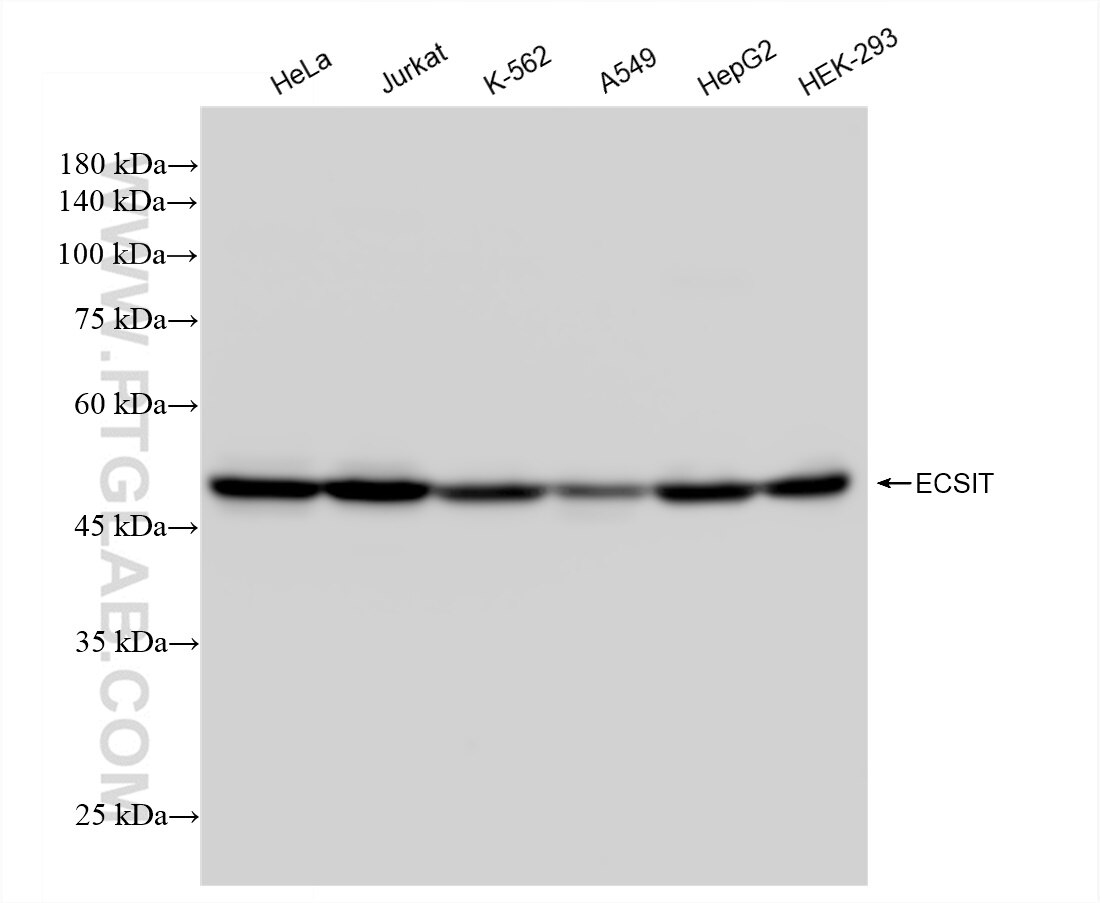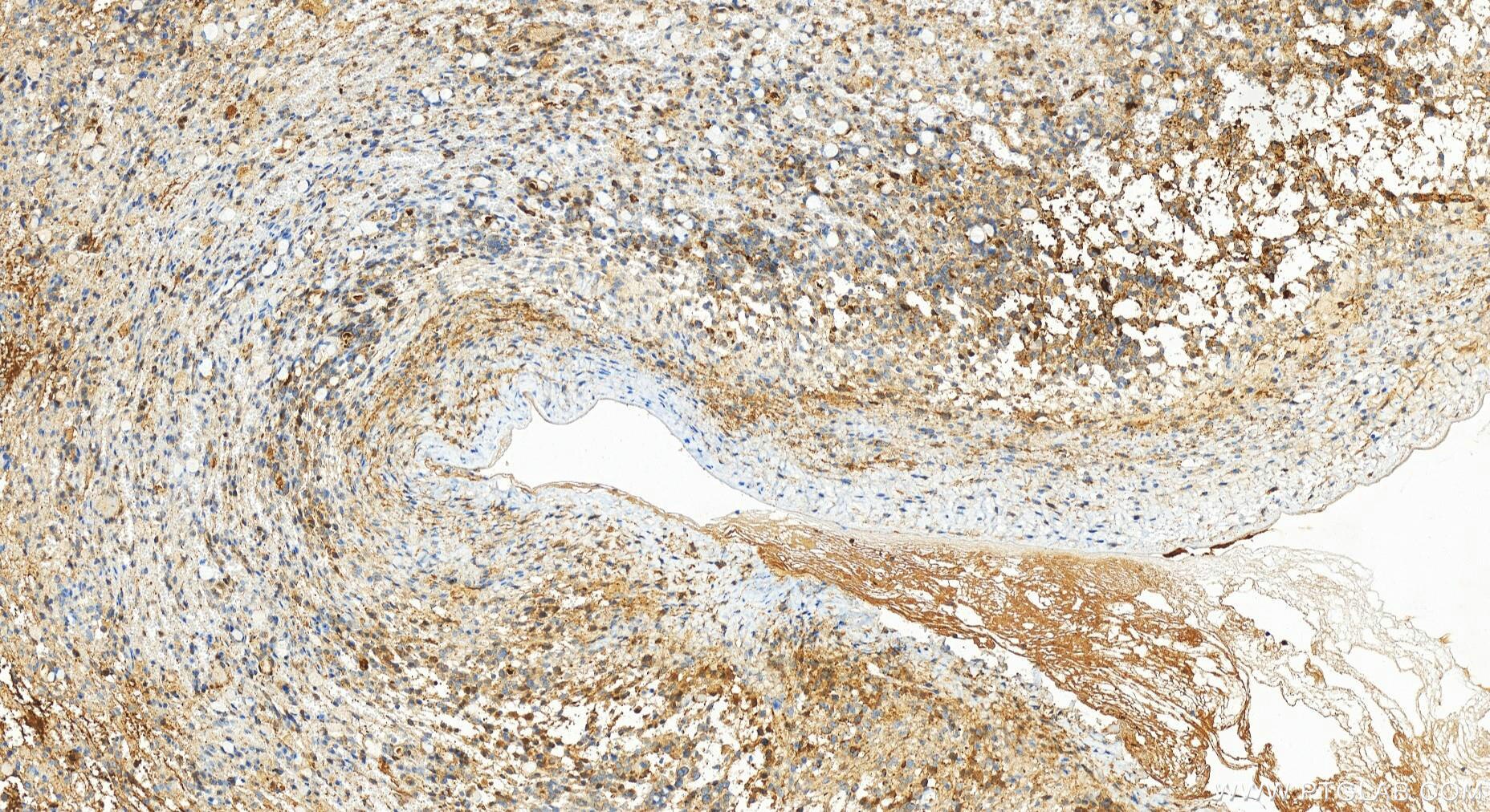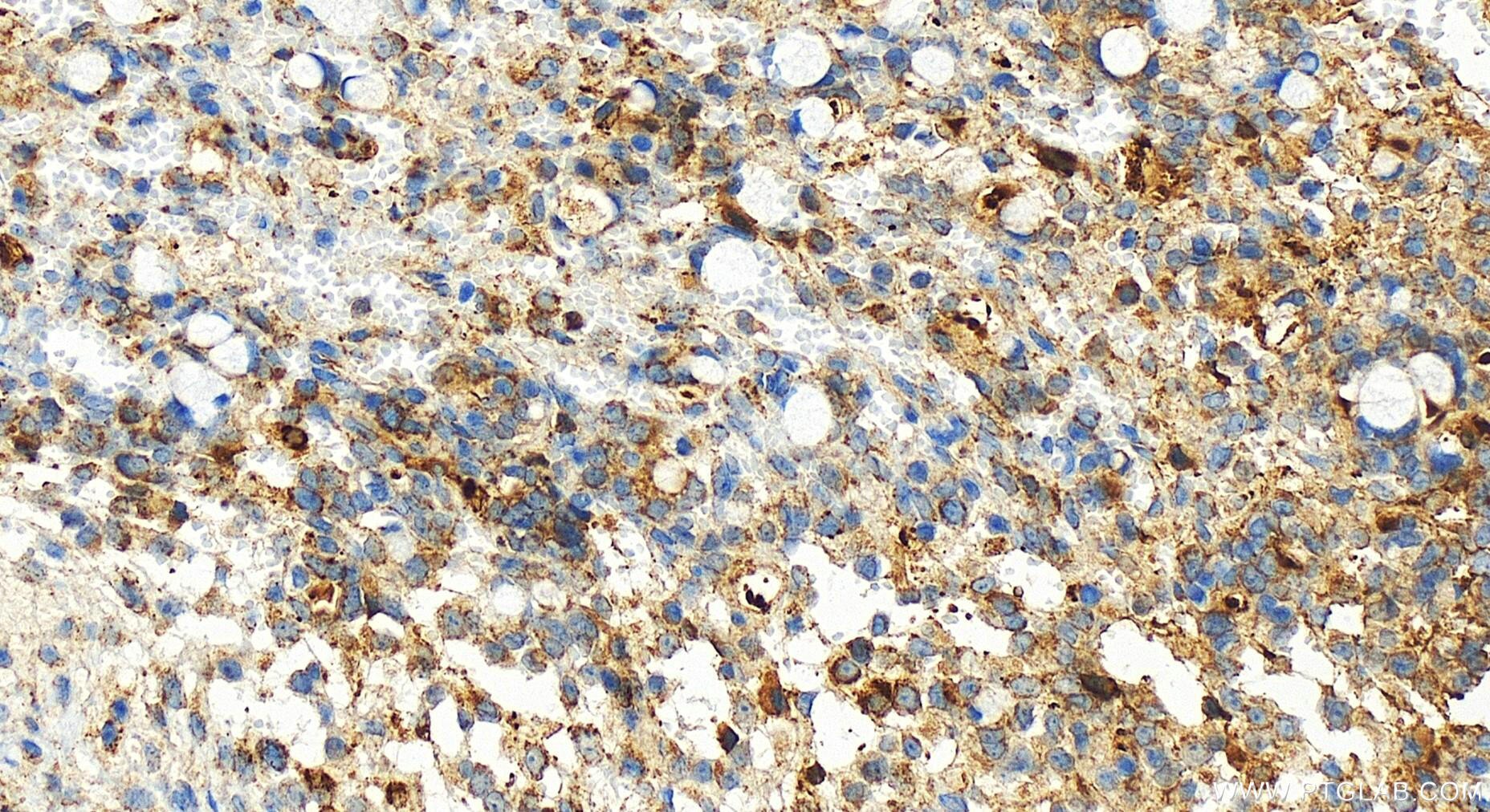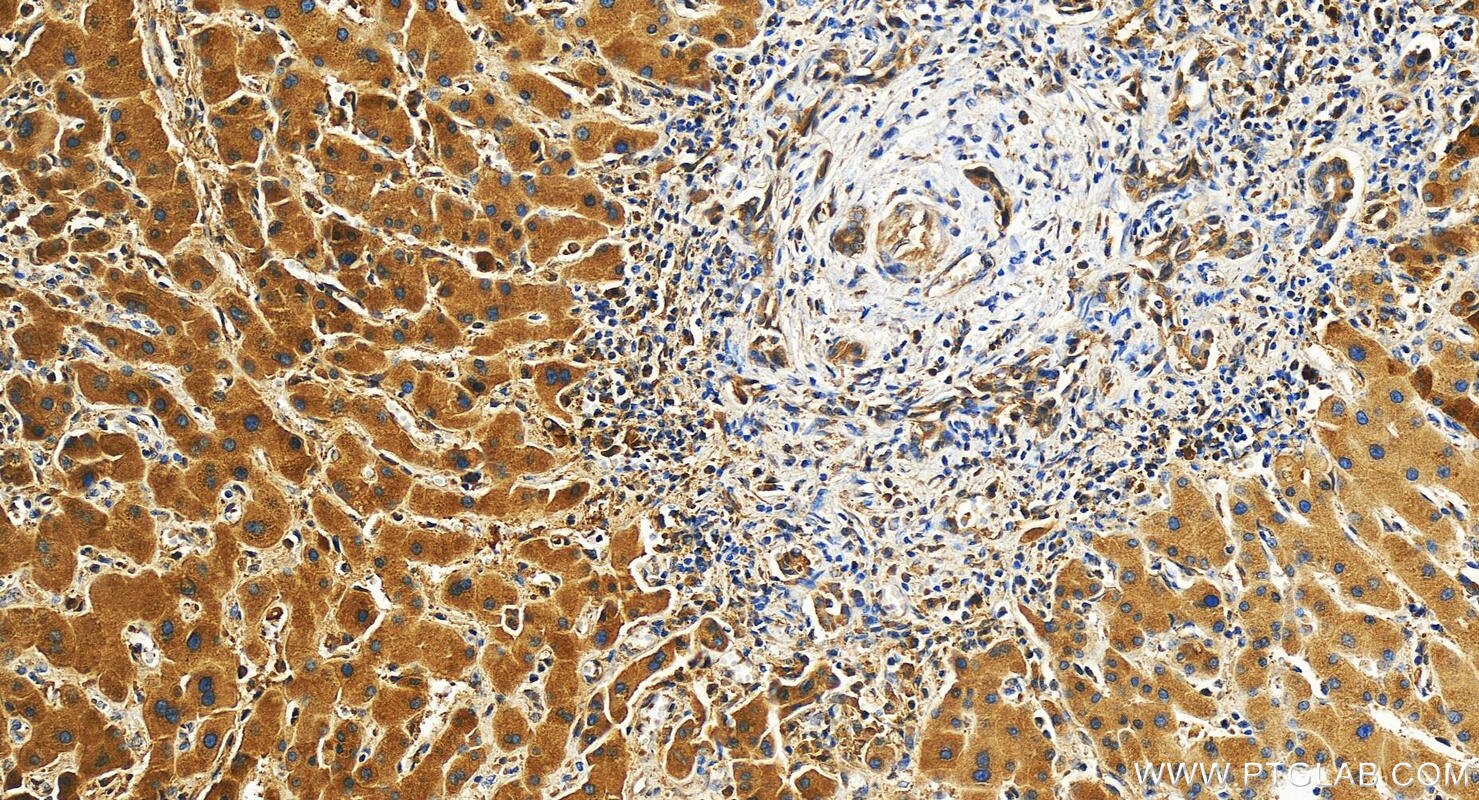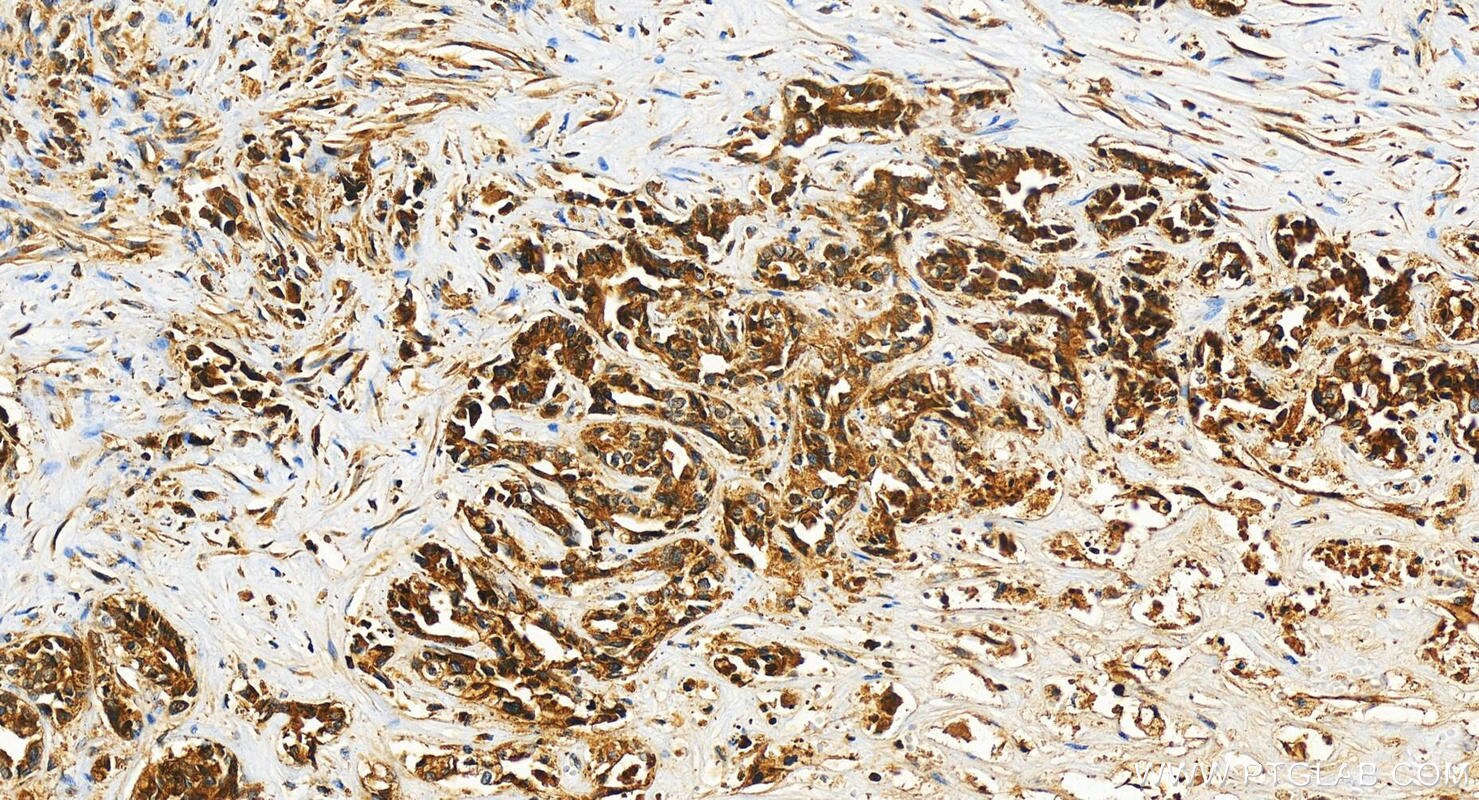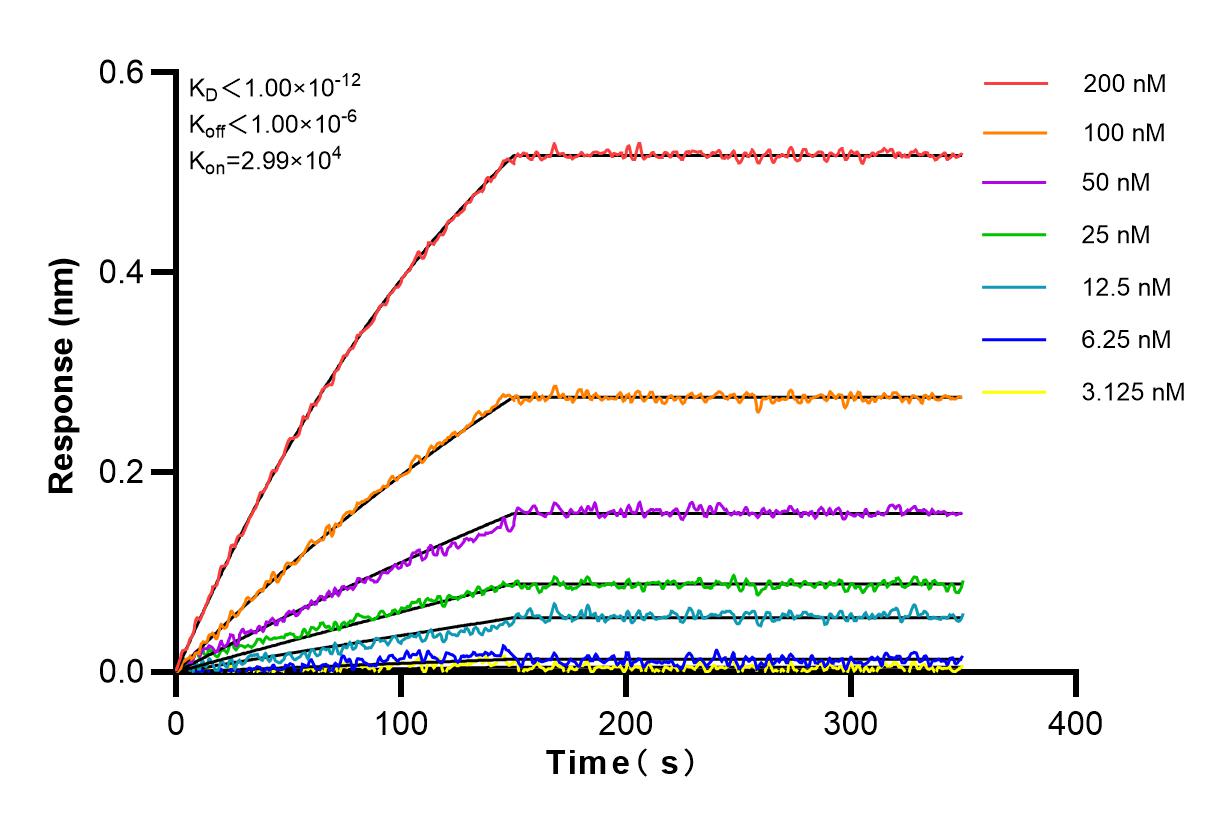Tested Applications
| Positive WB detected in | HeLa cells, Jurkat cells, K-562 cells, A549 cells, HepG2 cells, HEK-293 cells |
| Positive IHC detected in | human ovary cancer tissue, human intrahepatic cholangiocarcinoma tissue Note: suggested antigen retrieval with TE buffer pH 9.0; (*) Alternatively, antigen retrieval may be performed with citrate buffer pH 6.0 |
Recommended dilution
| Application | Dilution |
|---|---|
| Western Blot (WB) | WB : 1:5000-1:50000 |
| Immunohistochemistry (IHC) | IHC : 1:50-1:500 |
| It is recommended that this reagent should be titrated in each testing system to obtain optimal results. | |
| Sample-dependent, Check data in validation data gallery. | |
Product Information
83295-1-RR targets ECSIT in WB, IHC, ELISA applications and shows reactivity with human samples.
| Tested Reactivity | human |
| Host / Isotype | Rabbit / IgG |
| Class | Recombinant |
| Type | Antibody |
| Immunogen | ECSIT fusion protein Ag26898 Predict reactive species |
| Full Name | ECSIT homolog (Drosophila) |
| Calculated Molecular Weight | 49 kDa |
| Observed Molecular Weight | 49 kDa |
| GenBank Accession Number | BC008279 |
| Gene Symbol | ECSIT |
| Gene ID (NCBI) | 51295 |
| RRID | AB_3670961 |
| Conjugate | Unconjugated |
| Form | Liquid |
| Purification Method | Protein A purification |
| UNIPROT ID | Q9BQ95 |
| Storage Buffer | PBS with 0.02% sodium azide and 50% glycerol , pH 7.3 |
| Storage Conditions | Store at -20°C. Stable for one year after shipment. Aliquoting is unnecessary for -20oC storage. 20ul sizes contain 0.1% BSA. |
Background Information
ECSIT is a cytosolic adaptor protein associated with the toll-like receptor pathway. It has a distinct N-terminal mitochondrial targeting sequence, pentatricopeptide repeat motif, and a C-terminal pleckstrin homology domain. ECSIT regulates many biological processes like embryonic development, inflammation, cardiac function, and assembly of mitochondrial complex I. In macrophages, the activation of TLRs by inflammatory signals promotes the translocation of TRAF6 to mitochondria where it engages ECSIT to stimulate the production of mitochondrial reactive oxygen species (ROS).
Protocols
| Product Specific Protocols | |
|---|---|
| WB protocol for ECSIT antibody 83295-1-RR | Download protocol |
| IHC protocol for ECSIT antibody 83295-1-RR | Download protocol |
| Standard Protocols | |
|---|---|
| Click here to view our Standard Protocols |
